The best augury of a man’s success in his profession is that he thinks it the finest in the world.
Mary Ann Evans, writing as George Eliot, Daniel Deronda (1876).
George Eliot
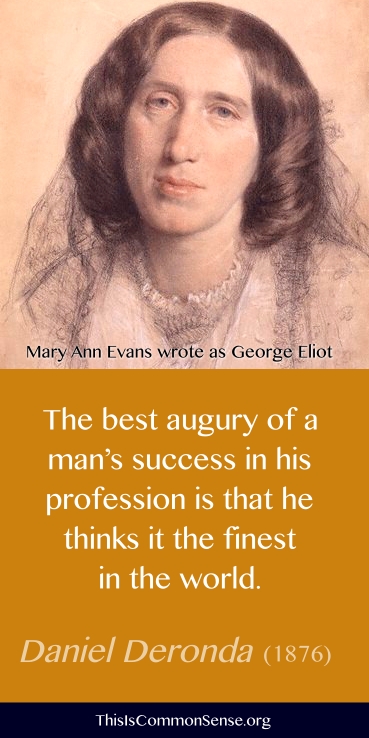

The best augury of a man’s success in his profession is that he thinks it the finest in the world.
Mary Ann Evans, writing as George Eliot, Daniel Deronda (1876).
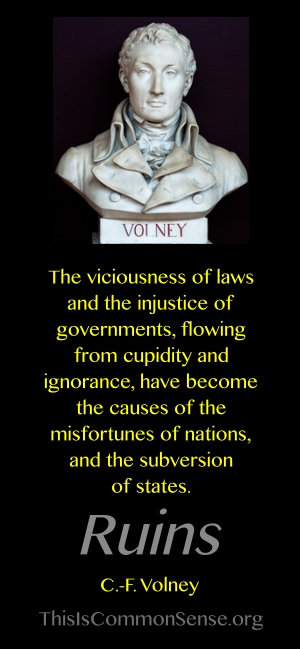
The perpetual play of the passions having produced incidents not foreseen — their conventions having been vicious, inadequate, or nugatory — in fine, the authors of the laws having sometimes mistaken, sometimes disguised their objects; and their ministers, instead of restraining the cupidity of others, having given themselves up to their own; all these causes have introduced disorder and trouble into societies; and the viciousness of laws and the injustice of governments, flowing from cupidity and ignorance, have become the causes of the misfortunes of nations, and the subversion of states.
Constantin-François de Chassebœuf (1757–1820), Comte de Volney, The Ruins; Or, Meditation on the Revolutions of Empires, Chapter IX (Thomas Jefferson, translator).
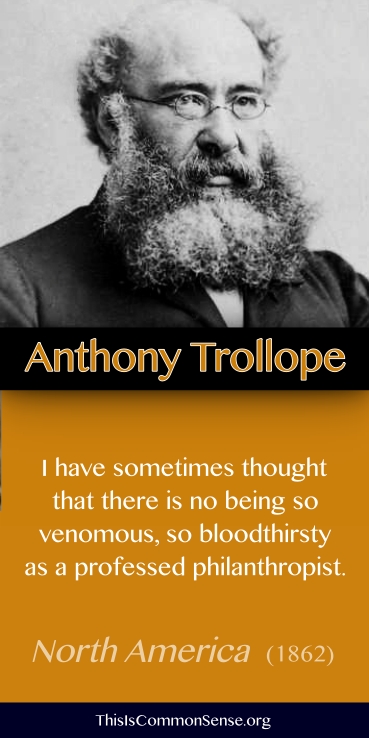
I have sometimes thought that there is no being so venomous, so bloodthirsty as a professed philanthropist.
Anthony Trollope, North America, Ch. 16 (1862).
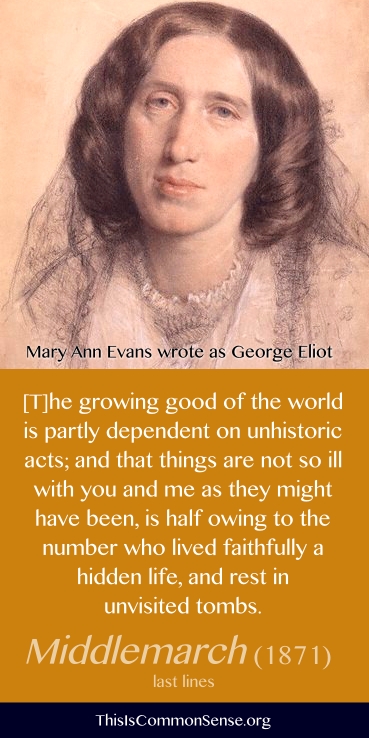
[T]he growing good of the world is partly dependent on unhistoric acts; and that things are not so ill with you and me as they might have been, is half owing to the number who lived faithfully a hidden life, and rest in unvisited tombs.Mary Ann Evans writing as George Eliot, Middlemarch (1871).
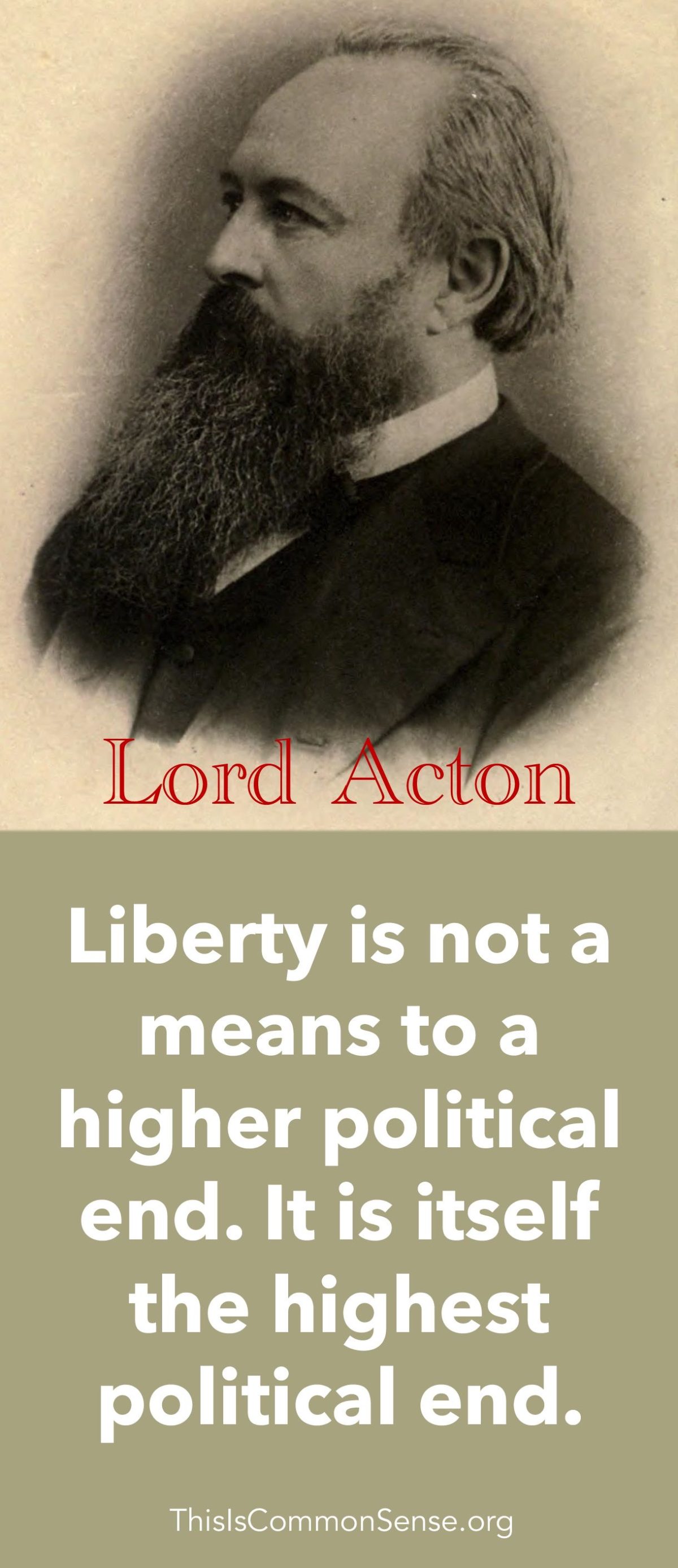
Liberty and good government do not exclude each other; and there are excellent reasons why they should go together. Liberty is not a means to a higher political end. It is itself the highest political end. It is not for the sake of a good public administration that it is required, but for security in the pursuit of the highest objects of civil society, and of private life.
John Dalberg-Acton, 1st Baron Acton, The History of Freedom in Antiquity (1877).
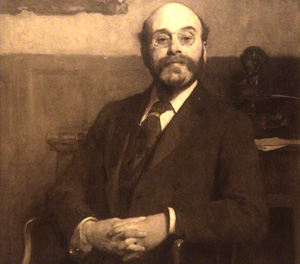
Our intellectual and moral natures come into play only when we discriminate and decide for ourselves. Just so far as this discrimination and decision are taken away from us, we are deprived of the most essential element of our manhood and womanhood, and are turned into mere tools propelled from without. That any community can, in the long run, gain by thus dwarfing and paralyzing the humanity of its members — that we could long succeed, even for administrative purposes, under such a system, is the notion of a moral spendthrift.
Joseph Hiam Levy, The Outcome of Individualism (Third Edition, 1892).